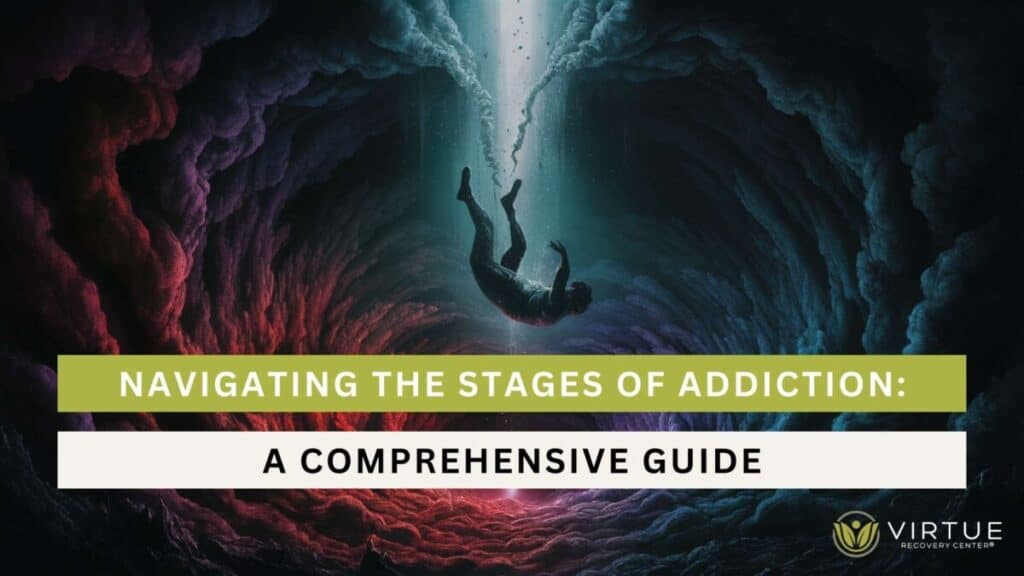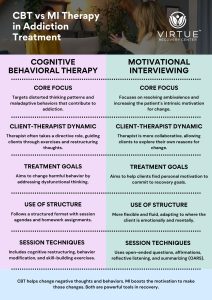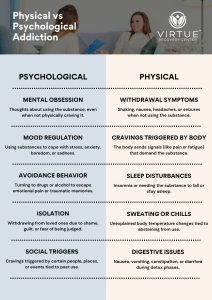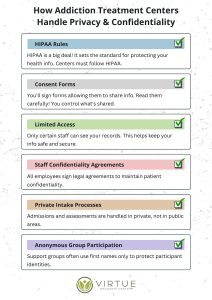Key Takeaways
- The progressive nature of addiction is best understood by its different stages.
- Identifying the signs and the activities related to each stage makes the intervention timeous.
- Stressing the need for individualized treatment plans to get the best results in the recovery process.
Introduction
Addiction is a complicated and changeable state that goes through different stages, each of which is characterized by specific behaviors and problems. The knowledge of these stages is the key not only for the people with an addiction themselves but also for their families and healthcare providers. It helps to identify and intervene in the right way that can drastically change the course of recovery. This guide covers the various stages of addiction, explaining how each phase is seen and how the intervention at each stage can be improved.
The Stages of Addiction
Addiction is commonly described as progressing through several stages: Experimentation, Regular Use, Risky Use/Abuse, Dependence, and Addiction/Compulsion. Each stage represents a deepening engagement with the addictive behavior, escalating from voluntary use to an intense compulsion.
Stage One: Experimentation
Experimentation is the first step when people start using substances, usually out of curiosity, without any pattern or commitment. For many, the use is still casual and does not go beyond that. The reason why some people stop at this stage while others go on is the key to solving the problem of early drug exposure and education.
Stage Two: Regular Use
The transition to the Regular Use stage occurs as use becomes more frequent. This stage doesn’t necessarily involve daily use, but a predictable pattern may interfere with everyday activities. Recognition of changes in habits or slight disruptions in daily responsibilities might indicate the need for early intervention.
Stage Three: Risky Use/Abuse
In the Risky Use stage, the frequency and intensity of substance use go up, which usually results in dangerous behaviors and obvious negative consequences like legal problems, relationship issues, and health deterioration. This stage is characterized by the apparent decline in the person’s ability to keep up with their lifestyle, with addiction becoming the main factor in their decision-making.
Stage Four: Dependence
Dependence can be psychological, physical, or both. It is characterized by the necessity to use the substance to function or avoid withdrawal symptoms. At this point, the individual often uses it to feel normal, and much of their time is spent obtaining, using, or recovering from the substance. Dependence significantly restricts the individual’s ability to control their usage and takes a severe toll on all aspects of their health.
Stage Five: Addiction/Compulsion
In the last stage of addiction, the compulsive behavior is the most prominent. People still use drugs even though they face dire negative consequences. This stage is usually characterized by the loss of control and the continuation of substance use even when it no longer gives pleasure. The urge to use results from the changes in the brain chemistry caused by the long-term use of the substance.
Treatment Options and Recovery
The treatment needs can be very different at the different stages of addiction. The beginning stages may require less intensive interventions like outpatient support and counseling. In contrast, the later stages might need structured treatment programs, which include detox and residential care. Virtue Recovery Center provides a range of treatments that are designed for each stage of addiction. Thus, every person gets the right level of care.
Relapse as a Part of the Recovery Process
Relapse should be regarded as a possible phase of the recovery process, not a failure. Comprehension and planning for the possibility of relapse are the critical elements in the treatment process; the strategies are put in place to manage and reduce its effects if it happens.
Conclusion
The way through the stages of addiction is challenging, but with the correct information and help, recovery is possible. Understanding the signs and symptoms at each stage is the main factor for providing effective interventions that can result in successful long-term outcomes.
If you or someone you are aware of is going through any stage of addiction, do not forget that help is there. Call Virtue Recovery Center in Las Vegas at 866-520-2861 to learn how our tailored treatment programs can help you start the recovery process now.
FAQs
What are the signs that experimentation is moving to regular use?
The more often the substance is used, the more the settings where it is used are diverse, or the more the use is prioritized over other activities.
How can families intervene effectively in the early stages of addiction?
Open communication, clear boundaries, and professional guidance can effectively solve problems.
What are some common triggers for relapse?
The stress, the exposure to the cues linked to past use, and the significant life changes.
How does treatment vary between the stages of addiction?
Less intensive interventions could help in the early stages, while comprehensive inpatient care is usually needed in the later stages.
Can someone fully recover from addiction?
Of course, with the proper treatment and assistance, people can be sober and stay that way.
Resources
https://nida.nih.gov/publications/drugs-brains-behavior-science-addiction/drug-misuse-addiction
https://www.mayoclinic.org/diseases-conditions/drug-addiction/symptoms-causes/syc-20365112
https://my.clevelandclinic.org/health/diseases/6407-addiction













